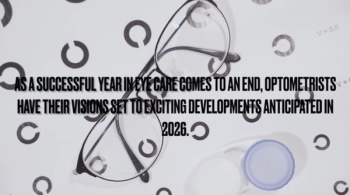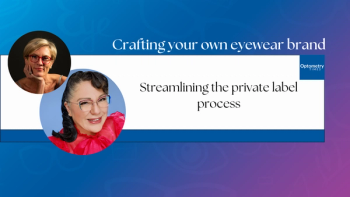
Optometrists and physicians need each other
Optometry has worked for more than 35 years to equip itself as a primary care profession.
If organized ophthalmology had its choice, though, optometry would still be a profession with no privileges to utilize diagnostic or therapeutic medications. Its efforts to limit optometry have been done under the guise of protecting the public, but the reality is that at least part of its motive is to protect its turf.
While that position is understandable, ophthalmology should embrace optometry as the primary eye-care provider. What general ophthalmologist does not enjoy receiving a referral for surgery? Many ophthalmologists actively solicit such referrals. Ophthalmologists are specialists-eye surgeons-and many have advanced subspecialty training. Such specialists should strive to position optometry as the primary eye-care provider and their referral source.
Think how overwhelmed our healthcare system would be if all it had available to provide comprehensive eye care was 19,000-plus ophthalmologists. We need our 34,000-plus optometrists to also be primary eye-care physicians. Who else will diagnose and treat all the glaucoma patients? Screen all the diabetics? Treat all the dry eyes, infections, and trauma?
So how should these two professions work together? By realizing they need each other in order to provide the full scope of eye care to the public.
For example, the condition that is most commonly referred out from a typical primary care optometrist is a patient with a cataract, a condition almost all ophthalmologists are qualified to treat. But if a primary care optometrist refers a cataract patient to an ophthalmologist who provides primary eye care as well as surgical care, is he or she referring to a specialist?
Should an ophthalmologist who has open access to his or her practice truly be considered a specialist? Do they provide "back to school" exams? Yes. Prescriptions for glasses? Yes. Care for the entire family? Yes.
How can an ophthalmologist excel in all aspects of primary care and surgical care? Optometrists want to direct their patients to the physician who is best equipped to handle their specific problem. In the instance of cataract, the more cataract surgery one performs, the statistically better the outcome.
Surgeons who perform less than 250 cataract operations per year have been found to have eight times the complications of surgeons who perform more than 1,000 cataract operations per year (Bell C, Hatch W, Cernat G, Urbach D. Surgeon volumes and selected patient outcomes in cataract surgery: a population-based analysis. Ophthalmology. 2007 Mar;114(3):405-410).
While an ophthalmologist who performs greater than 1,000 cataract surgeries per year could also excel in delivering primary care services, it is unlikely that they would have the time to do so personally. It would be more practical for the primary care to be delivered by someone other than the highvolume surgeon.
The optometric referral center concept took root in the early 1980s. The first one to gain national notoriety was the Vision Educational Foundation Research and Diagnostic Center in Atlanta. Its purpose was to bring primary care optometrists together to work with secondary care ophthalmologists. The orchestrators of this center understood that ophthalmologists who limited their services to caring only for patients referred by primary care optometrists would evolve into better surgeons.
Newsletter
Want more insights like this? Subscribe to Optometry Times and get clinical pearls and practice tips delivered straight to your inbox.













































.png)


